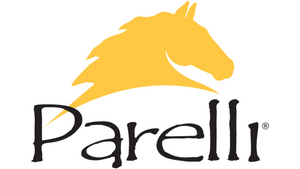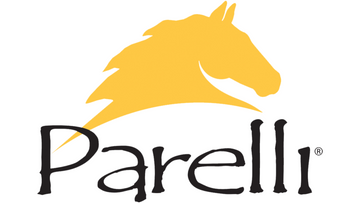
What does Cesar Millan know about horses?
I've known Cesar Millan for over a decade, and his truths about dogs also apply to horses. They are natural, wild animals in their nature. We must respect that.
I'd like to share some thoughts on preventing the Barbie Doll Syndrome or how not to raise a hothouse flower. So, let's think about horses and their nature in its finest form. They're meant to be raised in groups, in large areas where they can learn to use their proprioceptive processes to have self-carriage at every gate, to know how to do every maneuver we had ever asked them to do before we ever get on their backs out in the field playing. I want to paint you a natural picture of what nature intended horses to be able to do. We don't have to train them like robots, whether for dressage or reining, high school maneuvers, racing, or cutting. There's a natural way to assemble a horse to meet its natural riding potential. Once we know what is natural, we can look at what the term “keep it natural” means.
We can also start to observe what is normal. Just because many people do something doesn't necessarily make it right. I always like to come back and compare to the laws of nature. So many people these days get a horse to bring nature into their lives. Most often, the first thing they do is build a fancy barn, fill it with shavings, and keep the horses in 20-plus hours a day. The horses get turned out for an hour and ridden for an hour. Often way less than that. This is the most unnatural form. So many horses end up with digestive problems, colic, founder, and psychosomatic syndromes because of this environment.
Nature would never produce an animal with all those problems in its natural habitat. In other words, how many wild horses colic? How many wild horses founder? How many wild horses have stable vices? I'm sure there's an incidence here or there, but it's very few because nature has a perfect plan.
But it's very easy to justify because we pay a lot for this horse. We shouldn't let them live out in the pasture. We shouldn't let them live without blankets. We shouldn't let them live without shoes. We should only let them live with the highest grain levels, even though they're not getting the physical activity necessary to burn it off.
So I'm just going to look at the human for a moment and remind us of the four human propensities that limit us from achieving the highest levels of Equus with horses—chauvinism. We think we are the greatest animal on the face of the earth. The second propensity is autocracy. We think we're smarter than everything else. So we must micromanage. Number three is anthropomorphism, meaning putting human thoughts and values into animals' actions. We treat horses like Barbie dolls, something other than they're not. The horse is Equus—nature in its finest form. The fourth propensity is the addiction to linear thinking. We want our process to look like our product and stay consistent.
But the horse's gift to us is not to be chauvinistic and not autocratic but to be great puzzle solvers by being lateral thinkers. The only way you can do that is to be realistic instead of anthropomorphic. Real and nature are great words that synergize with each other.
In the last four decades, I've presented these philosophies, thoughts, and ideas to millions of horse lovers worldwide. I've said thousands of times, raise your hand if you'd like to be good with horses. Of course, everybody raises their hand. Well, it's really easy. All you have to do is watch what everybody else does, then do the opposite. It's that simple. The only thing beyond genius is simple. Nature is simple. Horses are nature in its finest form, and they're simple. So we must learn how horses feel, think, act, and play to keep it natural and not put them in an artificial environment all the time.
Then we need to exercise it mentally, emotionally, and physically on the ground and in the saddle to play with his nature. Like Jean Autry says, “don't fence me in.”








YES
Thank you so very much about keeping the Horses Natural. I agree with the reality of how the Life for the Horses should be able to live a good life . And also all of that life for ourselves . Thank you Pat Parelli and thank all the teachers and staff that helps us so much to have a wonderful relationship with our horses .
Wow this is good. Thanks for sharing. I don’t have a riding horse but will use this with my mini when we go walking 😊.